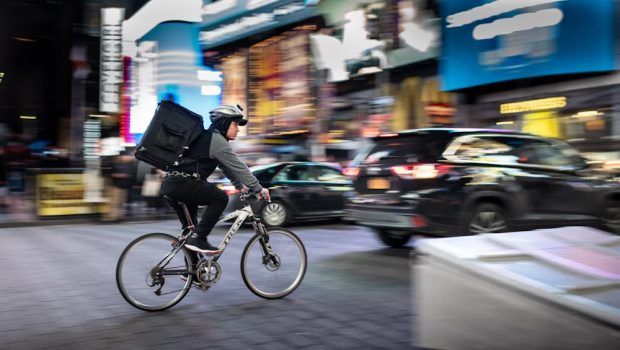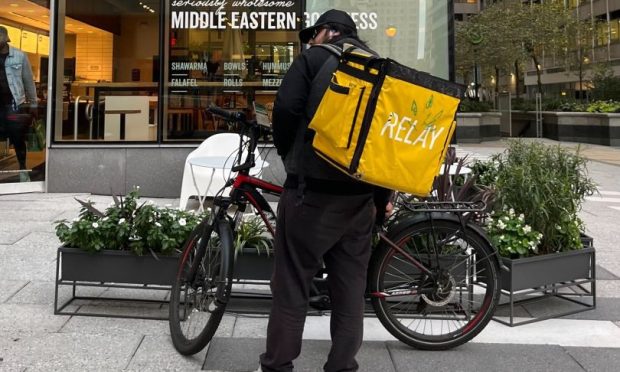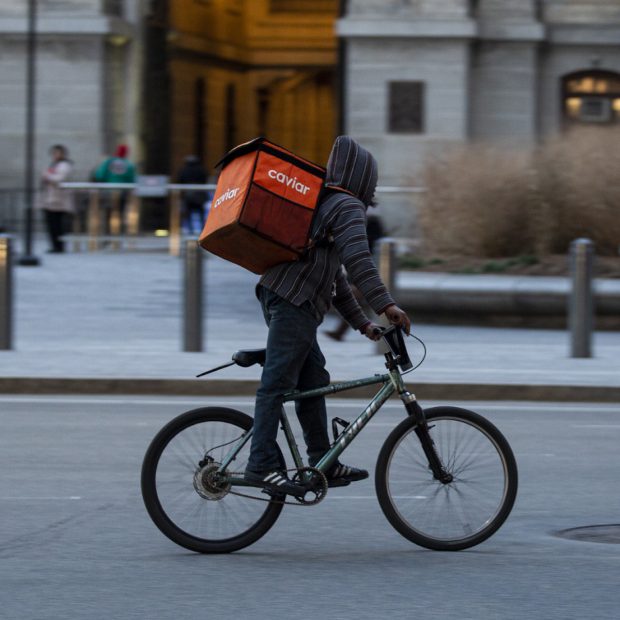
In the bustling streets of New York, food delivery couriers face a myriad of challenges, from earnings deprivation to the constant threat of robbery, all while feeling neglected by law enforcement. This article explores their daily struggles and how couriers navigate through adversity, establishing recreation centers and forming patrols for self-protection.
The Willis Avenue Bridge in New York has become a hotspot for criminal activity against couriers. The poorly lit bike path, coupled with hiding spots on both sides of the bridge, provides an ideal setting for thieves wielding knives, guns, and machetes. This section delves into the rising incidents of robberies and attempted thefts, revealing a 65% increase during the pandemic, with local police discouraging reports due to low chances of detection.
This section sheds light on the daily challenges faced by the 65,000 couriers in New York, including unstable earnings, longer routes with shorter timeframes, being ignored by drivers, disappointing weather conditions, and the frustrating refusal of restaurants to allow restroom access. Additionally, it highlights the prevalent issue of customers ordering small items without leaving tips. Some couriers have taken matters into their own hands by joining nonprofit organizations and collaborating with officials to advocate for legal reforms.
This segment explores how delivery services have transformed the market, with couriers adapting to meet increasing demands from companies. The introduction of electric bicycles, particularly the preference for Arrow mountain bikes, is discussed. The evolution of e-bikes from being ridden mainly by older Chinese immigrants to becoming a job requirement for major delivery services like Uber Eats and DoorDash is detailed. The article also touches upon the challenges faced by couriers in managing these technologically advanced bikes.
READ: Understanding Credit Scores: Renting Features in NYC
Here, the article discusses the speed and safety concerns of couriers, emphasizing the preference for Arrow mountain bikes that can reach speeds of up to 45 km per hour. The high cost of these bikes, especially when equipped with additional features like a phone charger, extra battery, and splash guards, is explored. It sheds light on how couriers ride almost as fast as motorists, acknowledging the inherent dangers and the risk of fines if they slow down in traffic.

Publications highlight the typical dual business model employed by companies, which includes Profitable Digital for order acceptance with associated commissions and a logistically complex order delivery business. This segment emphasizes Relay Delivery’s strategic focus solely on order delivery, working directly with restaurants to streamline the process by aggregating orders from various external applications and sites.
Detailing the advantages of restaurants collaborating with Relay Delivery, this section outlines how establishments save on fees paid to platforms like Uber Eats. Relay couriers receive a competitive flat hourly wage of $12.50 plus tips, fostering increased productivity.
The article emphasizes that delivery workers aim to fulfill an order every 15 minutes, regardless of distance.
This part delves into the distinctive challenges faced by Relay couriers compared to counterparts at Uber Eats and DoorDash. The article explains how Relay couriers must adhere to a pre-approved schedule, with highly rated couriers enjoying priority during peak dinner hours. Additionally, the strict acceptance of orders, specific delivery instructions, and the risk of suspension for non-compliance are highlighted.
Examining the precarious position of couriers, this section explores how they are considered independent contractors by apps, app employees by restaurants, and restaurant representatives by customers. Despite this, delivery providers wield significant discretion. The article reveals that couriers have established bases throughout the city for breaks, underscoring their lack of support from companies and the government.
READ: Secrets and Abandoned Buildings of New York: From Graveyard Island to Forgotten Hospital
Discussing the popular choice of Arrow mountain bikes among couriers, this section explores the additional benefits beyond technical features. Arrow shops are noted for repairing bikes at affordable prices, and sometimes for free, while second batteries are available for a monthly fee.

READ: Investing in Dubai Villas May Become Irrelevant: Understanding the Situation and Revealing Myths
Examining the complex legal landscape, this section details how couriers faced hostility from the state, particularly in 2017 when Mayor Bill de Blasio banned throttle-powered e-bikes, including the popular Arrow. The subsequent challenges with fines, seizures, and delayed legalization until 2020 are highlighted, showcasing the hurdles faced by delivery companies in their interaction with authorities.
Like us on Facebook for more stories like this: